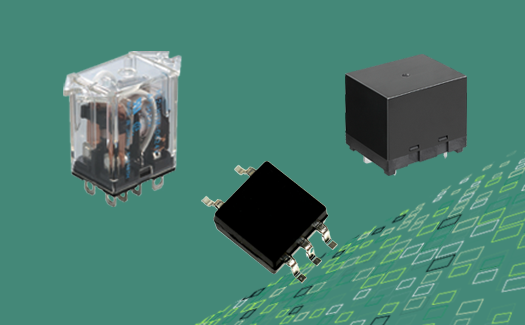
How To Measure Relay Contact Resistance
Published on- Relays & Contactors
Relay Contact Resistance
Contact resistance is a crucial electrical characteristic. The resistance between the contact terminals determines the Relay's ability to carry current. The contact resistance is subject to change during the life of the Relay. Based on lab investigations and testing, abnormal contact resistance has often been found with the following conditions:
- Overload condition on the contact causing welding
- Contacts reach end of life
- Foreign substance adheres to one of the contact surfaces
Most of Panasonic's electromechanical Relays have a specified contact resistance value of 100 mOhms (Max):
| Arrangement | 1 Form A | 1 Form C | 1 Form A |
| Contact resistance (Initial) | Max. 100m Ω (By voltage drop 6 V DC 1 A) | Max. 100m Ω (By voltage drop 6 V DC 1 A) | Max. 100m Ω (By voltage drop 6 V DC 1 A) |
| Contact Material |
AgSnO₂ type |
AgSnO₂ type | AgSnO₂ type |
Measuring Contact Resistance
The standard method for measuring contact resistance is the 6Volt 1Amp method, sometimes referred to as four wire measurement. It is a simple method that can be easily implemented with two power supplies, and a digital voltage meter (DVM).
Standard Method For Measuring Contact Resistance
- Use a power supply that can output voltage and current, set its maximum voltage output to 6 Volts and the maximum current output to 1 Ampere.
- Connect the leads of the DVM to the common (COM) contact and the normally closed (N.C.) contact terminals.
- Set the DVM to measure Voltage.
- Turn on the coil power supply to energize the coil and engage the contacts.
- The reading on the DVM is the Voltage Drop across the contacts. However, since the load is 1A and Ohm's Law says that V = IR, then V = R. Therefore, the voltage reading on the DVM is also the resistance between the contacts.
Example: If the DVM reading is 15 mV, then the resistance measurement is 15 mOhms.
This simple method of measuring contact resistance can turn out to be very helpful when performing a simple diagnostic investigation.
Check out Panasonic's electromechanical Relays and other products here.









